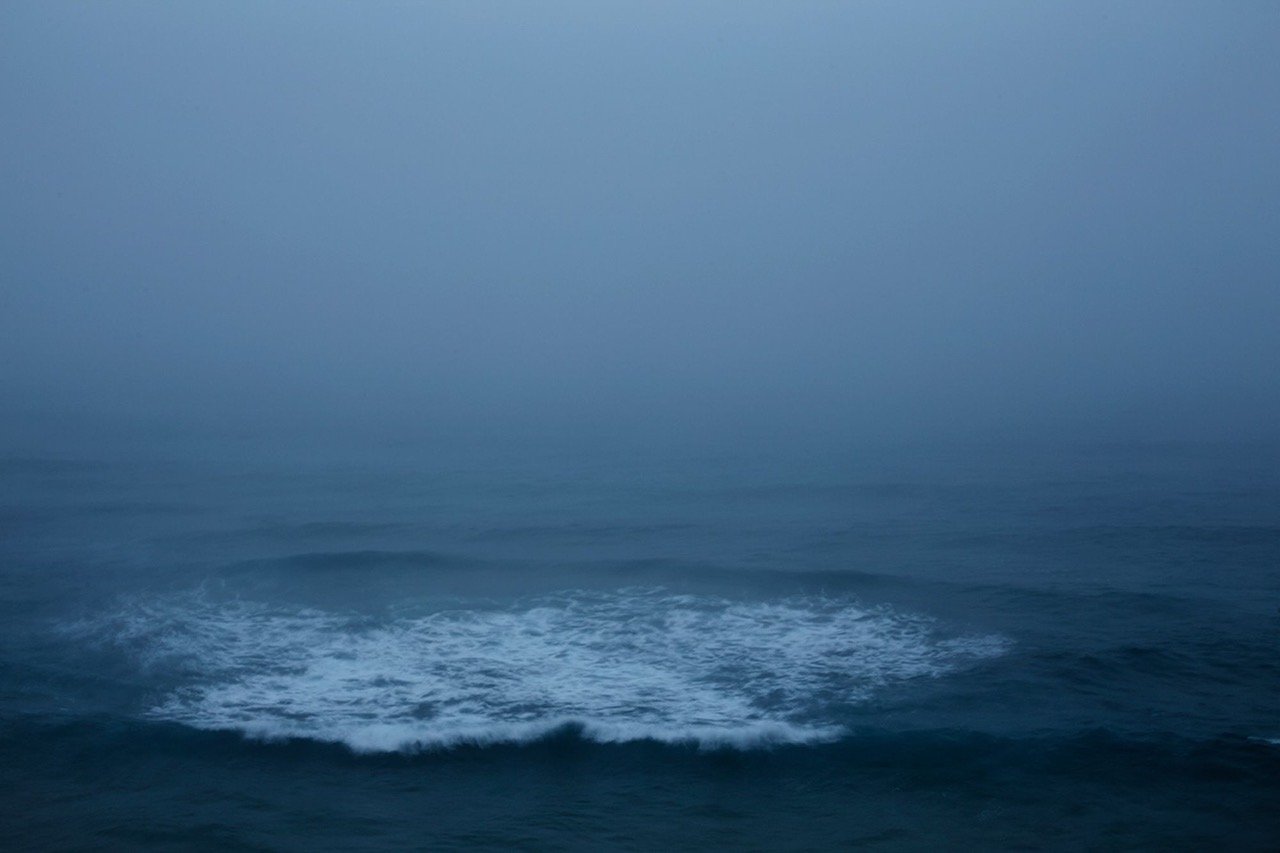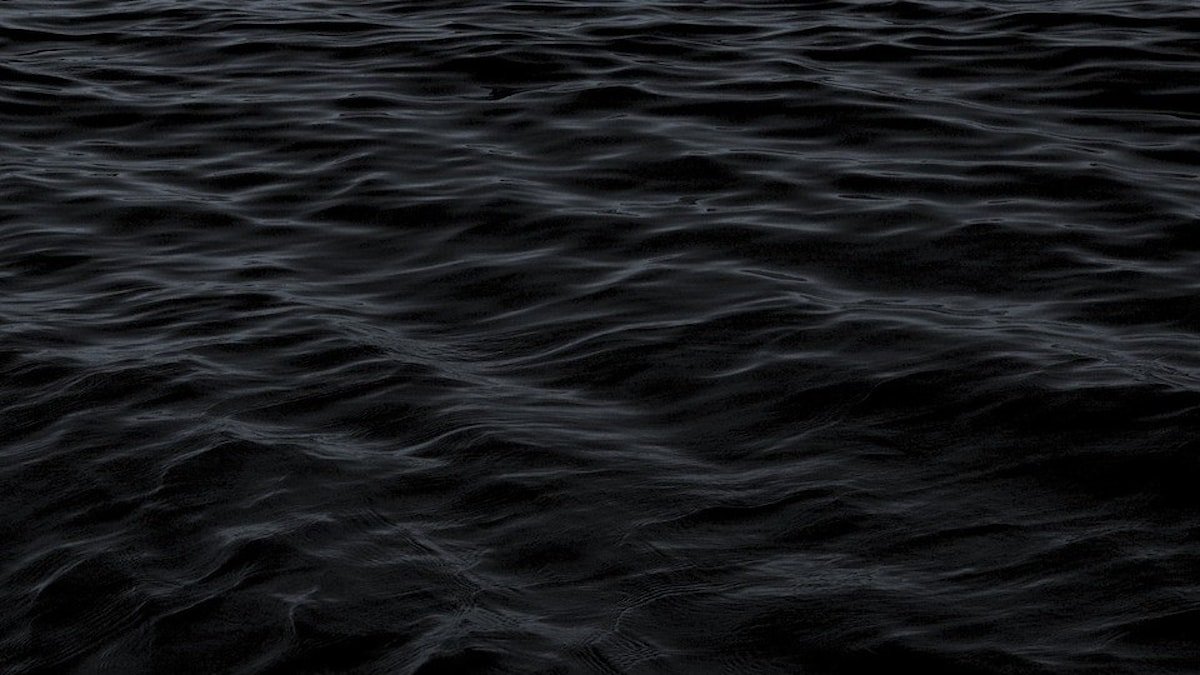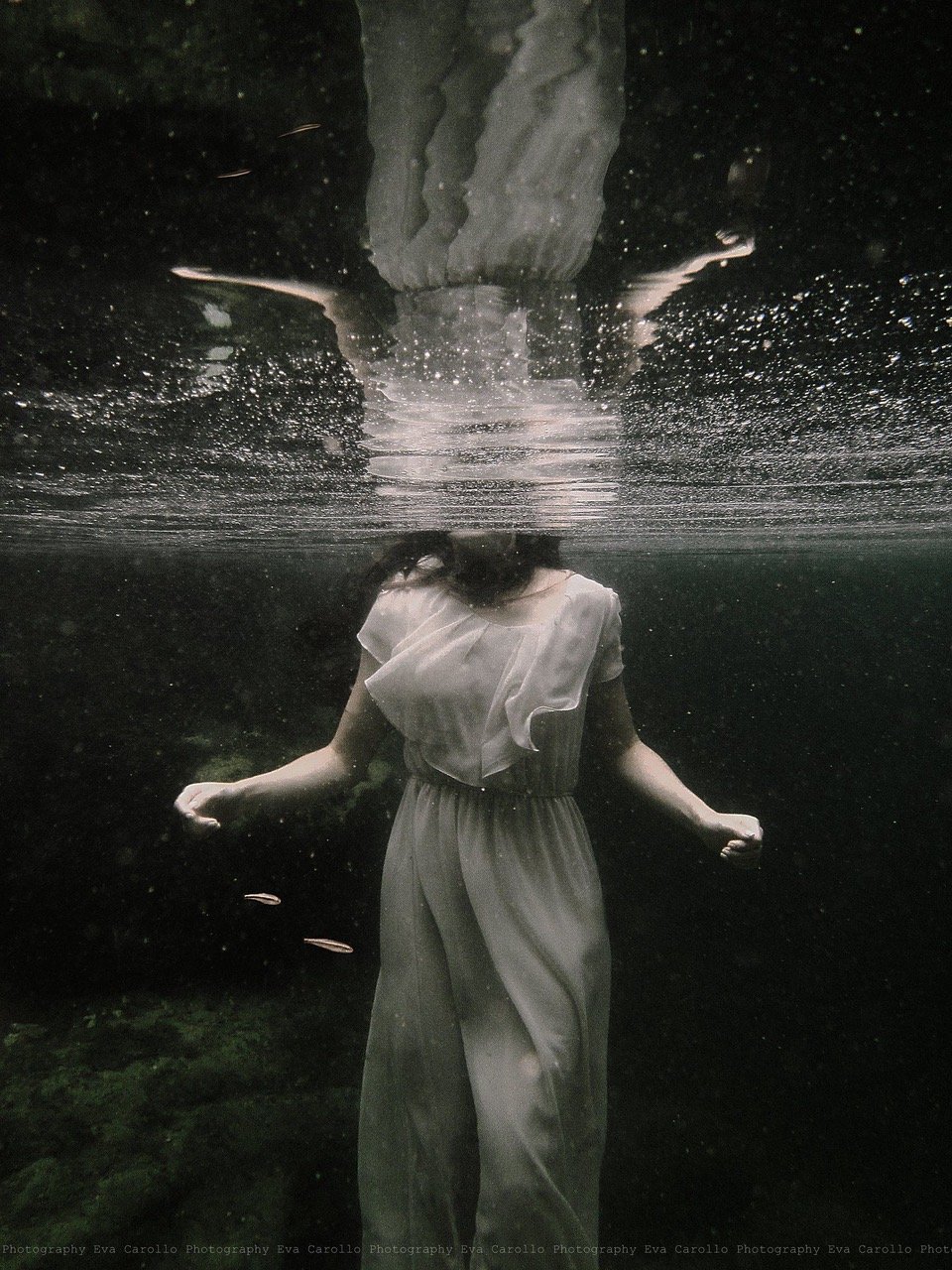
chasing silence
by Victoria Thomas
There is a silence where hath been no sound,
There is a silence where no sound may be,
In the cold grave—under the deep deep sea,
Or in the wide desert where no life is found,
Which hath been mute, and still must sleep profound;
No voice is hush’d—no life treads silently,
But clouds and cloudy shadows wander free,
That never spoke, over the idle ground:
But in green ruins, in the desolate walls
Of antique palaces, where Man hath been,
Though the dun fox, or wild hyena, calls,
And owls, that flit continually between,
Shriek to the echo, and the low winds moan,
There the true Silence is, self-conscious and alone.
Silence, Thomas Hood

Hania Rani is a young Polish composer, pianist, songwriter and vocalist based in Berlin who seems a reluctant celebrity as her cult-following blossoms across Europe and beyond. Her moody, atmospheric work merges classical, jazz and synthesized tech elements, producing an ethereal result often likened to water, waves, and the rise and fall of sighing tides. For lack of a better term, she’s labeled avant-garde, ambient, and neo-something (fill in the blank), descriptors which, while true enough, are frustratingly insufficient. Rani herself seems unbothered, gliding over genres with achingly beautiful instrumental passages which defy categorization. Whether created for the studio, stage or as a film soundtrack, Rani’s music feels like awakening to the sound of a steady rain. The acoustic and electronic storm magnifies and retreats in intensity, with a chant-like energy underlying every key change and melodic turn.
The artist moves between multiple keyboards and consoles, clad in the simplest jeans and tee, unadorned, brunette locks waving like a pelagic kelp-bed. Her slim hands are a masterpiece of genetics, long fingers flying and pulling incantations from the keys. It may be tempting to compare Rani with Björk (sans the primal screams and kooky showmanship) and Enya (sans the singing whales) for her use of atonal sound and lyrics which are cryptic, or simply absent, but she’s an altogether different sort of wild child. The late composer and arranger George Winston seems more of a twin flame to Rani’s elusive gifts.


Although classically trained and infinitely serious about her work, Rani offers no intellectual framework for her art. Taking the plunge with her requires a process of submerging and dissolving expectations without the usual life-raft of a rational structure, as in, “This is a song about…,” much less a libretto. This fluidity makes her creation thrillingly unpredictable. Rani’s music requires stepping off the deep end to submerge into a soundscape which feels embracing and supportive, just as the evenly distributed pressure and weight of water surrounding the buoyant body indeed does, but yet is ultimately mysterious and inscrutable. Rani pulls us into a hypnotic sonic undertow of soft power, and soon our feet can no longer touch bottom. Oh, no! So there are only two choices: either quickly switch to a reassuringly formulaic Taylor Swift cut, or simply abandon any lingering notions of terra firma and allow Rani to lift and carry us to uncharted destinations.
Her soprano vocals are feathery and melancholy, her small range framed in pulsing minor-key arrangements, and it’s clear that she’s chasing ghosts (thus the name of her most recent album). Rani’s sphere is undeniably tinted by loss, longing, and an actively present past as she sings plaintively “Don’t break my heart”—except that we can sense that it’s already too late.
In interviews, Rani has revealed that much of her music is improvised. This fact complicates the prospect of collaboration, although today she teams with other artists more frequently than in the past. She has explained that she’s an only child, urged into music competitions as a young girl by her mother who spotted her daughter’s talents early in life. Soolip recently caught up with the artist via email and asked if she observes a special ritual to prepare for composing and performing. Rani answers:
“To compose new music, I need to be alone in the silence. I need to be sure no one is watching me and I can feel comfortable and free. It probably allows be to focus properly. For performing, what helps me a lot is a calm and nice soundcheck time. I like to warm up on my own and make sure with my sound engineer that all the instruments and vocals sound good. It gives me confidence on stage.”


Rani’s modesty and candid, though retiring nature seem the antithesis of stardom. Artistically, she’s a self-sufficient island in a world awash with deluded magical thinking around fame, early-morning-glitter-on-a-random-futon “American Idol” residue, commoditization (especially of young women who want to be performers), and deep drags of toxic, wannabe pipedreams. We asked what she does other than create music to stay in a nourished, creative space, we learned, not surprisingly, TikTok and Insta are not among her go-to’s:
“I read books, papers, watch movies, go to exhibitions, galleries and meet people. My job is a pretty lonely one, so I spend a lot of time on my own which I admire but in order to get a fresh perspective I like to be surrounded by people, especially people who are not musicians. Some months ago, I decided to quit social media. I am still ‘curating’ my Instagram but it is basically run by my management. And this step was also a significant step for me to make in order to get myself out of being overwhelmed with references and stimuli, I am curious what idea I can come up with without being influenced all the time by other people’s feeds. I also suspect it might be beneficial for my mental health which is such a sensitive thing when being a touring musician.”
Her mention of mental health is salient. The trance-y aural layering of Rani’s compositions is sedative yet refreshing. The non-linear, largely non-verbal nature of her work touches on the neural reservoir of the listener, bringing sensations to the surface as the music gently unfolds like a water-stain on silk. Or to reference Eliot, like a patient etherized upon a table.
Neuroscience conjectures feverishly these days to understand ultra-dimensional experiences like this, conjecturing that the sound bath may awaken perinatal memories held dormant in our synapses since before birth, or perhaps reconstitutes ancient brain-function similar to the effects of DMT, the primary psychoactive component of ayahuasca. As we listen, psychological archetypes emerge. The expanse of Rani’s compositions may serve as an inner road map, guiding transitions from wrathful to blissful states similar to those experienced in the presence of certain Thangkas, where flames and fangs dissipate into jewels, lotuses, and drifts of clouds. We may even feel that Rani’s surprisingly intimate music is somehow initiating in us an awareness of processes at a cellular or even atomic level, synching to the listener’s pulse and heartbeat.

Rani’s music isn’t so much heard as it is entered, like an unmarked doorway down a dark alley that opens into a melting undersea palace. This music is transformative, taking us from rocky seacoasts to a place of brilliantly sparkling peace. This aural journey ends with the music serving in the role of the listener’s guide and protector. Exploring Rani’s catalog of eight essential albums, we may feel the relief of ecstatic sinking, like Ophelia, submitting to the waters of oblivion versus seeking answers. We will return to the upper world, however, and when we do, it will all seem new, and strange, for we are seeing with changed eyes.
Death moves as a presence through Rani’s work, alluring, perhaps a cooling relief from the angst of usual consciousness. Without (thankfully) any reductive liner-notes or other explanation from the artist, we are compelled to wonder whose death we’re contemplating. Perhaps the ghost Rani chases is, in fact, the artist herself.
And to quote Eliot a final time:
I have heard the mermaids singing, each to each.
I do not think that they will sing to me.
I have seen them riding seaward on the waves
Combing the white hair of the waves blown back
When the wind blows the water white and black.
We have lingered in the chambers of the sea
By sea-girls wreathed with seaweed red and brown
Till human voices wake us, and we drown.
from The Love Song of J, Alfred Prufrock, T.S.Eliot
All photos courtesy of the artist and Wikimedia Commons.
